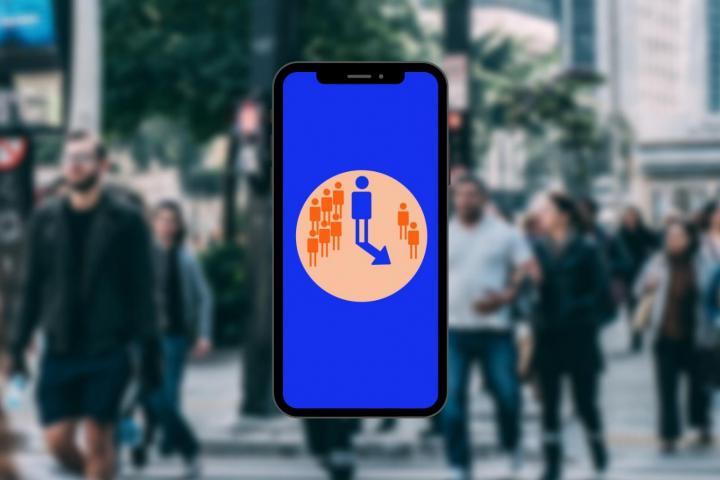
The design of the application is focused on intuitive operation. The user simply selects the places he needs to go, and Nebojsa predicts time with fewer people around and thus safer to visit them. The Nebojsa can store a supermarket on the street, a playground, a park in the neighborhood or a pharmacy around the corner. Part of his forecast is a graph of two-day forecast of attendance of a given place to help users plan their trip as needed.
Unlike other available coronavirus solutions that monitor user movement and retrospectively assess who might have been infected, Nebojsa provides a prevention tool. The application does not monitor the movement or contacts of users and thus does not interfere with their privacy. “Since the beginning of the project, we have been trying to proceed as we are used to, i.e. scientifically. We consult European epidemiologists and psychologists on each part of the method. The core of our solution has been assessed by dozens of experts on three continents. We are in contact with other top scientific teams on a daily basis, which guarantees us all access to the latest knowledge, ”says the project's spiritual father Tomáš Krajník.
The data on which the prediction model is based is location data, not people, and therefore maintains the sender's anonymity. The authors call for active public involvement. Anyone who wants to help map their surroundings can manually enter occupancy rates through the FreMEn Explorer collection application, available on the same website. Thanks to artificial intelligence (AI) that has been developed for several years, even a small amount of data is sufficient to accurately predict occupancy. Each community, a bunch of neighbors, or even a single family can map their surroundings together and then use Nebojsa's predictions. In this way, all volunteers contribute to the development of Czech science by supporting the further development of AI algorithms and their confrontation with new knowledge. “Volunteers from the ranks of experts cooperate with us on the development. Most of them are concerned about the deployment of the so-called 'smart quarantine', the benefits of which are debatable from an epidemiological point of view, but which effectively link data in a way that is trivially misusable for tracking opposition and destroying democracy. Our system is developed in accordance with the opinions of epidemiologists, and even if it comes under the control of anti-democratic powers, the stored data does not point to and connect with anyone, ”says project manager Tomáš Vintr.
The first (pilot) version of Nebojsa is now available, which will provide its services to interested parties. However, the application will continue to evolve and will soon receive many improvements. Developers are planning to incorporate additional features into the software that contribute to better functionality (such as detailed location data or store opening hours). They are open to criticism from the scientific community and the public, and are happy to incorporate feedback in the planned updated version.
In addition to FEE CTU, scientists from other major university institutions such as the University of Manchester, the National University of Sciences & Technology (NUST), the Örebro University, the Belfort-Montbéliard University of Technology (UTBM) and the Belgrade University are working on the FreMEn contra COVID project. The prestigious Massachusetts Institute of Technology (MIT) supported the project and facilitated contacts with the US Department of Defense agency DARPA or the CDC (US Federal Office for Disease Control). The use of the project results has already been requested by telecommunications companies operating in Asia, which will involve 2 million active users in a pilot deployment and reach 50 million others via SMS services. “It is important to emphasize that the project could not exist without the help of dozens of volunteers who have been selflessly cooperating with us for a month,” adds Filip Majer of the Center of Artificial Intelligence at FEE CTU.